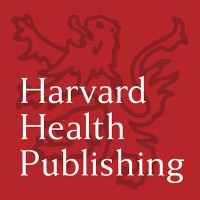The Secret Ingredients for a Longer, Healthier Life: Exercise and Coffee
June 23, 2025, 11:36 am
In the quest for longevity, two unlikely heroes emerge: exercise and coffee. These everyday elements hold the key to a healthier, longer life. They are simple yet powerful. Let’s dive into how they can transform your aging journey.
Exercise is the unsung hero of brain health. It’s not just about lifting weights or running marathons. It’s about movement. Regular physical activity reduces the risk of dementia. It sharpens the mind and keeps the body agile. Dr. Avinish Reddy, a longevity expert, emphasizes this point. He believes exercise is often overlooked. But it’s a cornerstone of healthy aging.
Racket sports, like pickleball and table tennis, are particularly beneficial. They require hand-eye coordination, which tends to decline with age. Engaging in these sports challenges the brain. It keeps it active and responsive. As we age, maintaining good coordination is crucial. It helps us perform daily tasks, from driving to navigating stairs.
The social aspect of exercise cannot be ignored. Team sports and group activities foster connections. They create a sense of community. For older adults, this social interaction is vital. It combats loneliness and boosts happiness. When people are motivated to return to their favorite activities, it’s often for the camaraderie. They want to reconnect with friends and enjoy shared experiences.
Pickleball, in particular, has gained popularity among those aged 55 and up. It’s more than just a game; it’s a social hub. Players report forming friendships that enrich their lives. The joy of movement combined with social engagement creates a powerful antidote to aging.
Now, let’s turn our attention to coffee. This beloved beverage has been a topic of debate for years. Is it good for you? A recent Harvard study sheds light on this question. Researchers followed nearly 50,000 women over 30 years. They found that drinking coffee is linked to healthy aging. It appears to offer protective benefits that are hard to ignore.
The study highlights that caffeinated coffee, not tea or decaf, is the key player. Women who consumed at least one cup daily were more likely to age well. Each additional cup increased their chances of healthy aging by 2% to 5%. The sweet spot seems to be around five small cups a day.
But what defines healthy aging? The study considered several factors. Participants needed to be 70 or older, free from chronic diseases, and maintain good mental and physical health. They also had to avoid memory issues. The findings suggest that coffee drinkers fit this profile more often than non-drinkers.
Interestingly, tea and decaffeinated coffee didn’t show the same benefits. Even sugary sodas like cola were linked to poorer health outcomes. This reinforces the idea that not all caffeine sources are created equal.
Moderation is key. While coffee can be beneficial, it’s not a magic potion. It works best when combined with other healthy habits. Regular exercise, a balanced diet, and avoiding smoking are essential. Coffee alone won’t turn back the clock. But it can be a valuable ally in the fight against aging.
The relationship between coffee and longevity is still being explored. Some studies suggest that moderate coffee intake can lower mortality rates. One to three cups a day may reduce the risk of dying by about 15%. This statistic is compelling. It shows that coffee could be part of a broader strategy for a longer life.
So, what’s the takeaway? Simple habits can lead to significant changes. Incorporating regular exercise into your routine is crucial. It doesn’t have to be complicated. Find activities you enjoy. Whether it’s pickleball, dancing, or walking, the key is consistency.
And don’t forget your daily cup of coffee. It’s more than just a morning ritual. It’s a potential booster for your health. Enjoy it mindfully, and pair it with other healthy lifestyle choices.
In conclusion, the path to longevity is paved with small, manageable steps. Exercise and coffee are two powerful tools in this journey. They enhance brain health, foster social connections, and may even extend your life. Embrace these habits. They are not just good for you; they are essential. Your future self will thank you.
Exercise is the unsung hero of brain health. It’s not just about lifting weights or running marathons. It’s about movement. Regular physical activity reduces the risk of dementia. It sharpens the mind and keeps the body agile. Dr. Avinish Reddy, a longevity expert, emphasizes this point. He believes exercise is often overlooked. But it’s a cornerstone of healthy aging.
Racket sports, like pickleball and table tennis, are particularly beneficial. They require hand-eye coordination, which tends to decline with age. Engaging in these sports challenges the brain. It keeps it active and responsive. As we age, maintaining good coordination is crucial. It helps us perform daily tasks, from driving to navigating stairs.
The social aspect of exercise cannot be ignored. Team sports and group activities foster connections. They create a sense of community. For older adults, this social interaction is vital. It combats loneliness and boosts happiness. When people are motivated to return to their favorite activities, it’s often for the camaraderie. They want to reconnect with friends and enjoy shared experiences.
Pickleball, in particular, has gained popularity among those aged 55 and up. It’s more than just a game; it’s a social hub. Players report forming friendships that enrich their lives. The joy of movement combined with social engagement creates a powerful antidote to aging.
Now, let’s turn our attention to coffee. This beloved beverage has been a topic of debate for years. Is it good for you? A recent Harvard study sheds light on this question. Researchers followed nearly 50,000 women over 30 years. They found that drinking coffee is linked to healthy aging. It appears to offer protective benefits that are hard to ignore.
The study highlights that caffeinated coffee, not tea or decaf, is the key player. Women who consumed at least one cup daily were more likely to age well. Each additional cup increased their chances of healthy aging by 2% to 5%. The sweet spot seems to be around five small cups a day.
But what defines healthy aging? The study considered several factors. Participants needed to be 70 or older, free from chronic diseases, and maintain good mental and physical health. They also had to avoid memory issues. The findings suggest that coffee drinkers fit this profile more often than non-drinkers.
Interestingly, tea and decaffeinated coffee didn’t show the same benefits. Even sugary sodas like cola were linked to poorer health outcomes. This reinforces the idea that not all caffeine sources are created equal.
Moderation is key. While coffee can be beneficial, it’s not a magic potion. It works best when combined with other healthy habits. Regular exercise, a balanced diet, and avoiding smoking are essential. Coffee alone won’t turn back the clock. But it can be a valuable ally in the fight against aging.
The relationship between coffee and longevity is still being explored. Some studies suggest that moderate coffee intake can lower mortality rates. One to three cups a day may reduce the risk of dying by about 15%. This statistic is compelling. It shows that coffee could be part of a broader strategy for a longer life.
So, what’s the takeaway? Simple habits can lead to significant changes. Incorporating regular exercise into your routine is crucial. It doesn’t have to be complicated. Find activities you enjoy. Whether it’s pickleball, dancing, or walking, the key is consistency.
And don’t forget your daily cup of coffee. It’s more than just a morning ritual. It’s a potential booster for your health. Enjoy it mindfully, and pair it with other healthy lifestyle choices.
In conclusion, the path to longevity is paved with small, manageable steps. Exercise and coffee are two powerful tools in this journey. They enhance brain health, foster social connections, and may even extend your life. Embrace these habits. They are not just good for you; they are essential. Your future self will thank you.

